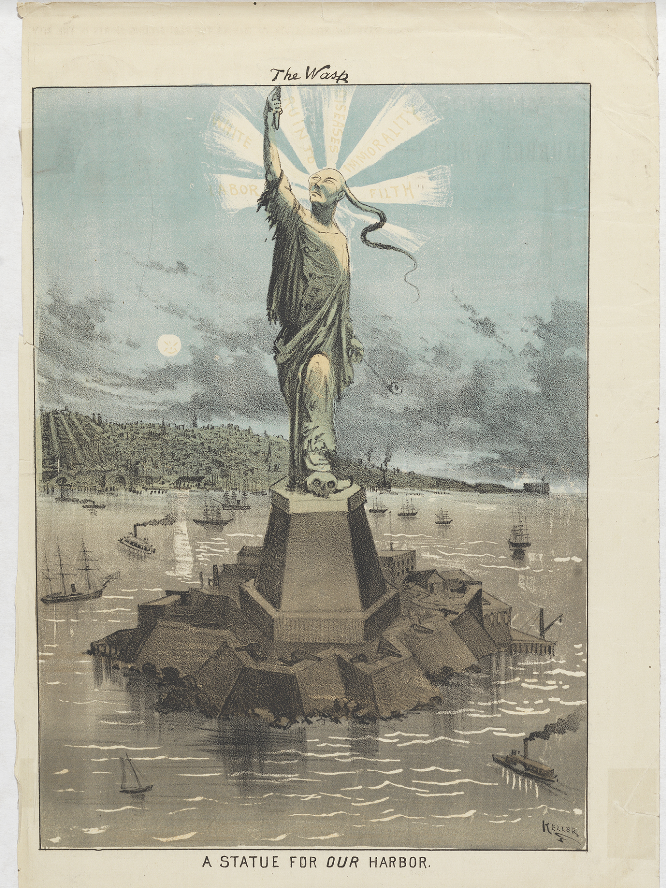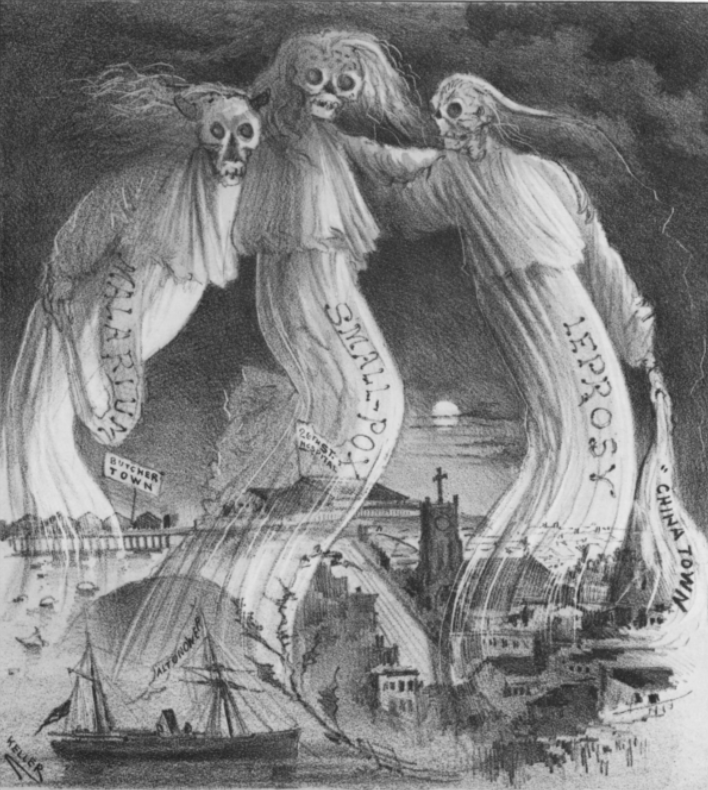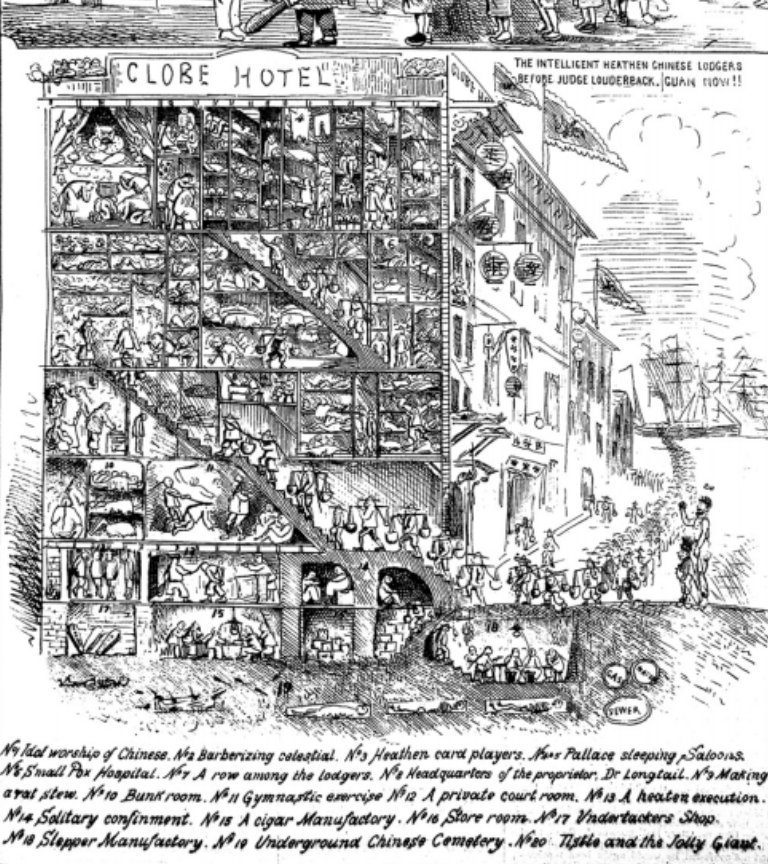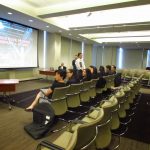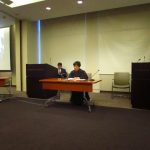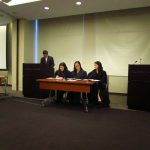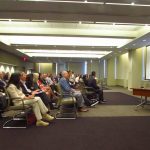
On October 3, 2025, community members gathered on the corner of Canal and Elizabeth Streets in Manhattan’s Chinatown to commemorate the life of U.S. Army Private (Pvt.) Danny Chen. Pvt. Chen was a Chinese American soldier who endured months of racial discrimination and severe physical abuse at the hands of his commanding officer and members of his unit while serving in the U.S. Army in Afghanistan. He later committed suicide while on duty. The commemoration was to remember his sacrifice, to bring attention to military hazing and the need for safety reforms, and to link his death to ongoing issues facing marginalized communities serving in the military.
The event was organized by the Committee to Keep Private Danny Chen’s Legacy Alive, a coalition of local and national organizations and community members, including family members of Private Danny Chen, activist Liz Ouyang, and organizations, such as OCA NY and NJ, Chinatown B.I.D., the American Legion Lt. B.R. Kimlau Chinese Memorial Post 1291, the Service Women’s Action Network, and Caribbean Equality Project, among others.

Renny Fong, Principal of PS 130, where Pvt. Chen attended elementary school described Pvt. Chen as a “son of Chinatown” who “carried joy wherever he went.” Principal Fong noted that while Pvt. Chen was offered a scholarship to attend Baruch College, Pvt. Chen chose to enlist in the U.S. Army.
After being assigned to his platoon in Afghanistan, Pvt. Chen was subjected to unrelenting abuse and hazing. He was physically abused, called racial slurs, and humiliated. He was assigned excessive guard duty to the point of exhaustion, made to do extreme physical training, and kicked and kneed by other soldiers while being forced to stay in a squatting stance. In a final instance of abuse and humiliation, Pvt. Chen was made to crawl across rugged terrain while other soldiers threw stones at him. A few hours later, Pvt. Chen took his own life while on duty in the guard tower. Pvt. Chen was 19 when he passed and was enlisted for only nine months.
Rosie Derong Li of Chinatown B.I.D. described the prosecution of the soldiers who abused Pvt. Chen. Seven enlisted soldiers and one commissioned officer were charged with the crimes of hazing, racial maltreatment, assault, and dereliction of duty. All were convicted. The commissioned officer agreed to resign from the military to avoid a general court martial.
Kenneth Wong, Commander of the American Legion Lt. B.R. Kimlau Chinese Memorial Post 1291, said of Pvt. Chen, “He endured weeks of brutal racist hazing and physical abuse, targeted for being Chinese American …. His death exposed the deeply rooted ugly culture of racism and hazing within the military.”
Angela Lee, President of the Organization of Chinese Americans (OCA) New York, highlighted ongoing issues in the military facing marginalized communities. She noted that this year’s commemoration of Pvt. Chen comes as the U.S. military banned all affinity groups at West Point Academy. Affinity groups offer a place where service members of different backgrounds can come together for support, mentorship, and solidarity and to help educate their peers on the culture and contributions of a diverse force.
Kathy Graham, volunteer with the Service Women’s Action Network (SWAN), talked about the importance of Diversity, Equity, and Inclusion (DEI) in military service and the importance of affinity groups in supporting the first generation of women serving in combat roles. Ms. Graham noted that her daughter was not able to celebrate her Harvard graduation with military peers because anti-DEI executive orders cancelled their graduation ceremony.
Tanya Asapansa-Johnson Walker, a trans veteran from the Caribbean Equality Project, spoke about her traumatic sexual abuse experience as a pre-transition trans person in the 1980s U.S. military and the important role LGBTQ+ affinity groups could have played in her military career had they existed at that time.
Community leaders pushed for concrete steps to prevent harassment and hazing in the military. They noted that restoring affinity and peer support groups, strengthening DEI initiatives, and accountable leadership are essential to safeguarding a culture of dignity and belonging so that what happened to Pvt. Chen never happens again.
Rachel Lee, Co-Chair of AABANY’s Issues Committee and President & General Counsel of Stand with Asian Americans, attended the commemoration. She reflected, “I appreciated that many speakers highlighted the importance of DEI and affinity groups, not only as measures that could have helped prevent tragic incidents like this for our service members but also as essential resources to cultivate a sense of belonging for underrepresented individuals more broadly today and to hopefully protect them from systemic hate.”
Principal Fong stated, “His story is one of heartbreaking loss, not only for his family, but for this entire beloved community. We will always remember Danny Chen, his life, his smile, and his sacrifice.”
AABANY was privileged to stand alongside many community groups and community leaders at this annual commemoration. Thanks to the Committee to Keep Private Danny Chen’s Legacy Alive for their continued dedication to this cause.
– written by Vishal Chander, AABANY Issues Committee Co-Chair and Board Director


